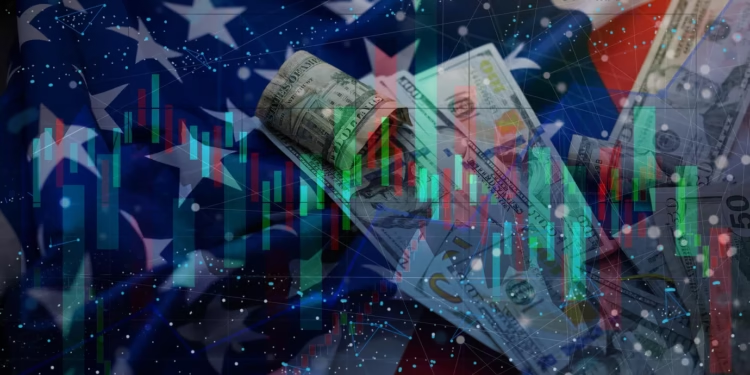The global pharmaceutical sector was sent into a tailspin on April 9, 2025, after former U.S. President Donald Trump reiterated his commitment to imposing sweeping tariffs on pharmaceutical imports if re-elected. The statement, delivered at a campaign event in Ohio, triggered an immediate and widespread selloff across U.S., European, and Indian pharma stocks, with investors rattled by the implications of potential trade disruptions and rising operational costs.
Trump’s remarks come at a time when the pharmaceutical industry is already grappling with regulatory bottlenecks, high inflation, and geopolitical uncertainty. The renewed threat of tariffs has only added to the headwinds, highlighting how vulnerable global supply chains are to policy shifts in one of the world’s biggest healthcare markets.
What Did Trump Say?
During the speech, Trump pledged to bring pharmaceutical manufacturing “back to America” and took aim at foreign drugmakers, promising a 60% tariff on imported pharmaceuticals if elected. He specifically mentioned countries like India and China, which currently supply a significant portion of generic drugs and active pharmaceutical ingredients (APIs) to the U.S.
“We’re going to stop relying on foreign countries for our medicine. We’ll bring jobs and factories home—and if they want to sell here, they’ll pay for it,” Trump told supporters.
Although no official policy document was released, the political signal was strong enough to roil global markets and ignite fears of retaliatory trade measures and long-term disruption.
U.S. Pharma Giants Hit Hard
The impact on Wall Street was swift and severe. Shares of major American pharmaceutical companies closed sharply lower as investors reassessed earnings forecasts in light of the possible tariffs.
- Pfizer (PFE) saw a drop of 3.5%, closing at $21.22.
- Merck (MRK) declined by 2.3%, finishing at $77.12.
- Eli Lilly (LLY) plunged by 4.2%, with its stock ending at $695.89.
Investors fear that imposing tariffs on imported components—many of which are essential raw materials sourced from overseas—could drive up manufacturing costs, disrupt drug availability, and squeeze profit margins.
Even U.S.-based drugmakers, which have extensive domestic facilities, rely heavily on imported APIs and packaging components. Tariffs on these imports could force companies to either absorb the costs or pass them on to consumers—both unattractive options in an already price-sensitive healthcare landscape.
Europe Joins the Selloff
The selloff was not limited to American companies. European pharma giants also took a significant hit:
- AstraZeneca shares fell by 5.5%.
- GlaxoSmithKline (GSK) dropped by 6%.
- Novartis shares declined by 5.8%.
The STOXX 600 Health Care index, which tracks leading European pharmaceutical firms, fell by 2.4%, with analysts citing growing uncertainty over European access to the U.S. market and fears of a broader global slowdown in cross-border pharma trade.

Indian Pharma Sector Under Pressure
India, often dubbed the “pharmacy of the world,” was hit particularly hard by the announcement. Indian companies supply more than one-third of all generic drugs used in the United States. Tariffs targeting these exports could severely dent revenues and hurt investor confidence.
- IPCA Laboratories shares dropped by 5.5%.
- Glenmark Pharmaceuticals fell by 4.8%.
- Biocon, a major biosimilar player, declined by 5%.
The Nifty Pharma index, which tracks the performance of key Indian pharma companies, closed nearly 2% lower. Analysts expect continued volatility in the sector as investors await clarification on the scope and timeline of the proposed tariffs.
“This is a big red flag for Indian pharma. The U.S. is not just a top buyer; it’s a strategic market,” said Anuj Mehta, an analyst at Kotak Institutional Equities. “Any move that affects market access or pricing will ripple through the industry.”
Analysts Warn of Supply Chain Shock
Industry experts and economists have been quick to caution that implementing broad tariffs on pharmaceuticals could backfire, leading to higher drug prices, supply chain bottlenecks, and shortages in essential medicines.
The U.S. pharmaceutical ecosystem relies heavily on a complex web of global supply chains. Many essential drugs are either wholly manufactured abroad or depend on imported APIs. Replacing these with domestic manufacturing is far from straightforward.
According to Courtney Breen, analyst at Bernstein Research, the cost of building a new pharmaceutical manufacturing facility in the U.S. can exceed $2 billion, and getting regulatory approval can take up to five years.
“If the goal is to onshore production, the timeline is long and expensive. In the short term, tariffs will only increase uncertainty and raise costs,” Breen said.
There’s also concern about the capacity of U.S. regulators to handle a sudden spike in domestic manufacturing license applications. Recent layoffs at the FDA, reportedly due to budget cuts, have already led to delays in drug approvals and inspections.
Rising Global Economic Anxiety
Markets in Asia also responded negatively to the tariff threat. Japan’s Nikkei 225 fell by 4.2%, while the MSCI Asia ex-Japan index dipped 2.4%, reflecting broader investor concerns about protectionist trends and global economic fragmentation.
In the U.S., both the Dow Jones Industrial Average and S&P 500 ended the day in the red, with healthcare and manufacturing sectors leading the decline.
Currency markets also showed signs of strain, with the Indian rupee weakening slightly against the dollar amid expectations of reduced export earnings from pharma and IT sectors.
What Happens Next?
As of now, the U.S. government has not released a formal proposal detailing the scope or timeline of any new pharmaceutical tariffs. However, the political intent has clearly been set, and markets are pricing in the possibility of sweeping changes in 2025 should Trump return to office.
Several trade associations, including the Pharmaceutical Research and Manufacturers of America (PhRMA), are expected to lobby against the move, citing risks to drug access, affordability, and innovation.
Governments of affected countries like India, Switzerland, and Germany may also engage in diplomatic discussions to seek exemptions or negotiate terms.
Meanwhile, pharmaceutical companies are likely to reassess their risk exposure, explore regional diversification of supply chains, and brace for a new phase of geopolitical uncertainty.
Final Word
Trump’s renewed tariff rhetoric may be part of a broader political strategy, but its impact on the pharmaceutical industry is already tangible. Stock markets have reacted sharply, investors are spooked, and multinational companies are staring down the barrel of operational upheaval.
For countries like India that have built a competitive edge in generic drug manufacturing, this could be a defining moment. The industry must now prepare for the dual challenge of defending market share in the U.S. while also future-proofing itself against political risks that lie beyond its control.
As global supply chains face renewed pressure, what remains clear is this: the business of medicine is no longer just about science—it’s also about strategy, diplomacy, and navigating global politics.











